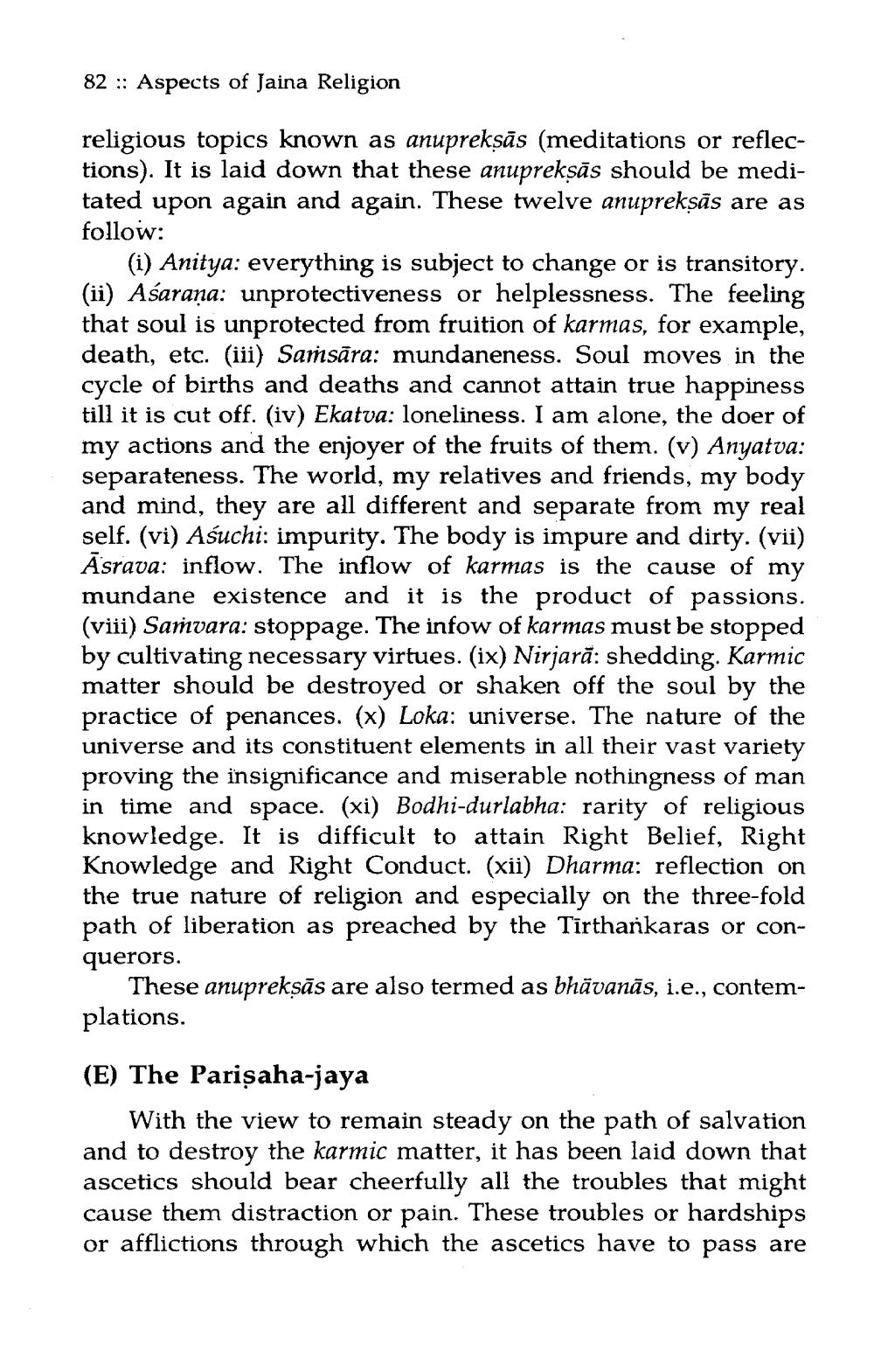________________
82 :: Aspects of Jaina Religion
religious topics known as anupreksās (meditations or reflections). It is laid down that these anupreksās should be meditated upon again and again. These twelve anupreksās are as follow:
(i) Anitya: everything is subject to change or is transitory. (ii) Asarana: unprotectiveness or helplessness. The feeling that soul is unprotected from fruition of karmas, for example, death, etc. (iii) Samsāra: mundaneness. Soul moves in the cycle of births and deaths and cannot attain true happiness till it is cut off. (iv) Ekatva: loneliness. I am alone, the doer of my actions and the enjoyer of the fruits of them. (v) Anyatva: separateness. The world, my relatives and friends, my body and mind, they are all different and separate from my real self. (vi) Aśuchi: impurity. The body is impure and dirty. (vii) Asrava: inflow. The inflow of karmas is the cause of my mundane existence and it is the product of passions. (viii) Samvara: stoppage. The infow of karmas must be stopped by cultivating necessary virtues. (ix) Nirjară: shedding. Karmic matter should be destroyed or shaken off the soul by the practice of penances. (x) Loka: universe. The nature of the universe and its constituent elements in all their vast variety proving the insignificance and miserable nothingness of man in time and space. (xi) Bodhi-durlabha: rarity of religious knowledge. It is difficult to attain Right Belief, Right Knowledge and Right Conduct. (xii) Dharma: reflection on the true nature of religion and especially on the three-fold path of liberation as preached by the Tīrthankaras or conquerors.
These anupreksās are also termed as bhāvanās, i.e., contemplations.
(E) The Parişaha-jaya
With the view to remain steady on the path of salvation and to destroy the karmic matter, it has been laid down that ascetics should bear cheerfully all the troubles that might cause them distraction or pain. These troubles or hardships or afflictions through which the ascetics have to pass are




